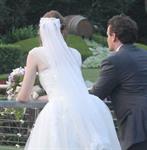Your choice of course should be determined by not only what you want or need to learn but also how much time, money and effort you are able to put into a course. Study takes an effort and does eat away at your resources, so it is sometimes better to start slowly (e.g. with a short course or certificate) and later undertake something bigger (e.g. a diploma or degree).
A wedding photographer will specialise in taking photos at a wedding. This may include pre-wedding shots while the bride and groom get ready, photos during the ceremony, photos of the bridal party after the wedding, photos of the family and wedding attendees, and photos during the reception.
A portrait photographer specializes in taking portraits of individuals or groups of people, for example family photographs, school photographs, baby photographs, model portfolios, etc. They usually operate from a studio, or from a location (such as a theme park or school).
As well as taking the photographs, the photographer will need to prepare for the shoot by finding locations, coursing appropriate equipment, setting up any required props or lighting, etc. After capturing the images, they will process the images (in modern times with the use of digital media this may include downloading the photos and making digital touch ups). They will then create the final images to present to customers.
As well as working with photographs, the photographer will also be required to market their services, network to find new clients, and perform administrative and business management tasks.
Opportunities
Photographers usually work as freelancers, so will rely on referrals, recommendations and experience to attract new clients. For the talented and well reputed photographer there are ample opportunities for business. It can, however be difficult to get to this stage.
Most freelance photographers develop relationships (formal or informal)that lead to regular work (e.g. with a venue, event company, restaurants, magazine, department store, etc.); and some open studios with a retail presence.
There may also be employment opportunities for a Wedding and Portrait photographer, in either full or part time positions.
Working for someone else can be more steady, but you may not be get paid as much, or have the same freedoms as if you work for yourself.
Risks and challenges
This is a very competitive industry, so you will need to be able to offer something unique to your clients to stand out. Putting together a portfolio of past work can demonstrate your abilities, and attract people to use your services over someone else.
How to become a Wedding and Portrait Photographer
You may complete a more general course in photography then specialise in wedding and portrait photography, or you may undergo studies to specialise in one or the other (or both). More importantly is a natural flair for photography, and lots of practice.
People will hire you for your unique perspective, so you will need to have a creative eye.
 Since most photography is done digitally these days, you will also need to be competent at using technology – both cameras and computers.
Since most photography is done digitally these days, you will also need to be competent at using technology – both cameras and computers.
You will need to have good communication and interpersonal skills to deal with a range of clients. You will need to be able to get them to relax so you can take photograph them at their best. You will need to develop good customer relations in order to secure on going or future work.
If you are working freelance, you will also need to have adequate business skills – in administration, marketing, managing finance, and so on.